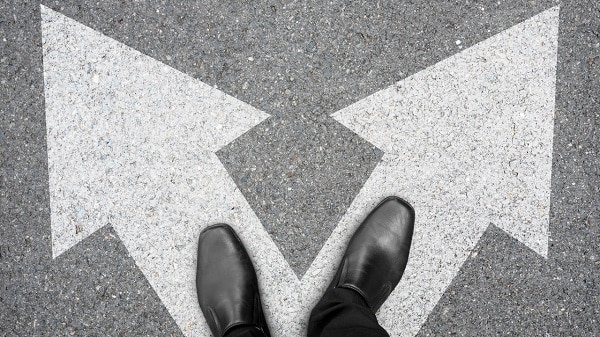Eating is not just about satisfying hunger; it’s a vital part of our daily lives that fuels our body and mind. Understanding when and what to eat is essential, but knowing what not to do on an empty stomach is equally important. From exercising to making life-changing decisions, certain activities can have adverse effects without proper nourishment. This article explores ten things you should never do on an empty stomach, shedding light on the underlying reasons and potential consequences. Let’s embark on this journey to better health and well-being.
Contents
Exercising

Exercising on an empty stomach might seem like a quick way to burn fat, but it can lead to more harm than good. Without proper fuel, the body may start breaking down muscle tissue for energy, leading to muscle loss. The lack of nutrients can also reduce stamina and performance, making the workout less effective. Understanding the balance between eating and exercising is crucial for optimal results, and neglecting this balance can hinder progress.
Moreover, exercising without eating can lead to lightheadedness and fatigue, affecting concentration and coordination. This not only diminishes the quality of the workout but also increases the risk of injuries. Consuming a light meal or snack rich in carbohydrates and proteins is advisable before hitting the gym. This practice ensures the body has enough energy to perform, protects muscle mass, and enhances the overall workout experience. The connection between physical exercise and mental tasks is profound, leading us to our next point.
Making Important Decisions

Making important decisions requires clear thinking and sound judgment, both of which can be impaired on an empty stomach. Hunger affects the brain’s ability to function optimally, leading to hasty and often poor decisions. Whether it’s a business choice, financial investment, or personal matter, the lack of nourishment can cloud judgment and lead to regrettable outcomes. Eating a balanced meal can provide the mental clarity needed to weigh options carefully and make wise decisions.
Research has shown that judges are more likely to grant parole after a meal break, highlighting how hunger can influence even the most critical decisions. The brain requires glucose to function, and a drop in blood sugar levels can lead to irritability and impulsive behavior. Ensuring proper nourishment before tackling significant decisions can lead to more thoughtful and rational choices. This principle extends to everyday activities, such as our next topic: grocery shopping.
Grocery Shopping

Grocery shopping on an empty stomach is a recipe for disaster. Hunger pangs can lead to impulse buying, filling the cart with unnecessary and often unhealthy items. The craving for instant gratification overshadows rational thinking, leading to choices that may not align with dietary goals or budget constraints. Planning meals and snacks before shopping can help guide choices and prevent the pitfalls of shopping while hungry.
Studies have shown that people tend to buy more high-calorie foods when shopping on an empty stomach. These choices affect health and can lead to wasted food and money. Creating a shopping list and eating a small snack before heading to the store can significantly affect purchasing habits. Being mindful of hunger and its influence on decision-making is a valuable tool in maintaining a healthy lifestyle and wise spending.
Arguing with Someone

Engaging in an argument or heated discussion on an empty stomach can lead to unnecessary conflicts and strained relationships. Hunger can cause irritability and short-temperedness, making a person more prone to aggression and less likely to think rationally. Even a minor disagreement can escalate into a major conflict when someone is hungry, as emotions run high and patience runs thin. Recognizing the signs of hunger and taking a break to eat can prevent these unnecessary escalations and promote more constructive conversations.
The saying “hangry,” a combination of hungry and angry, has scientific backing. Low blood sugar levels can trigger a stress response, releasing hormones that increase aggression. This physiological reaction can be mitigated by ensuring proper nourishment, especially before engaging in potentially contentious discussions. By being mindful of hunger and its effects on mood, one can navigate social interactions more gracefully and maintain positive relationships.
Taking Certain Medications

Taking certain medications on an empty stomach can lead to reduced effectiveness or harmful side effects. Some drugs require food to aid in absorption, while others may cause stomach irritation if taken without eating. Understanding the instructions and guidelines for medication is vital for both safety and efficacy. Ignoring these guidelines can lead to discomfort, health risks, and failure of the medication to perform its intended function.
For example, some antibiotics and pain relievers should be taken with food to prevent stomach upset or ulcers. Consulting with a healthcare provider or pharmacist about the best way to take medication, including timing with meals, can ensure proper treatment and minimize potential risks. This attention to detail extends beyond medication and into other substances we might consume, such as alcohol, which leads us to our next heading.
Drinking Alcohol

Drinking alcohol on an empty stomach can lead to rapid intoxication and increased health risks. Without food to slow absorption, alcohol enters the bloodstream more quickly, leading to a faster onset of its effects. This can result in impaired judgment, loss of coordination, and potentially dangerous situations, such as drunk driving or accidents. Consuming food with alcohol not only enhances the enjoyment of the drink but also provides a protective buffer for the body.
Moreover, drinking alcohol without eating can irritate the stomach lining, leading to discomfort or more serious gastrointestinal issues. Pairing alcohol with a meal or snack can mitigate these effects and promote a more responsible and enjoyable experience. Understanding the relationship between food and alcohol is essential for social enjoyment and personal well-being. This awareness extends to other daily routines, such as sleep, which we will explore next.
Going to Bed

Going to bed on an empty stomach can disrupt sleep patterns and overall sleep quality. Hunger pangs during the night can lead to restlessness and difficulty falling or staying asleep. While a heavy meal right before bed is not advisable, a light snack can provide the body with the energy needed to sustain through the night. Proper nourishment supports the body’s natural sleep cycle, promoting restorative rest and overall well-being.
Furthermore, an empty stomach can decrease the body’s ability to produce compounds essential for sleep, such as serotonin. Balanced nutrition supports the production of these compounds, enhancing sleep quality. Finding the right balance between eating and sleeping is key to maintaining health and energy levels. Recognizing the importance of nourishment in all aspects of daily life, from social interactions to sleep, is vital to a healthier and happier life.
Ignoring Hunger Signs

Ignoring hunger signs and consistently skipping meals can lead to long-term health issues. The body’s hunger signals are a natural response to the need for nourishment, and neglecting these signals can disrupt metabolic functions. Over time, this can lead to weight gain, nutritional deficiencies, and chronic health conditions like diabetes. Paying attention to hunger cues and responding with balanced meals and snacks is essential for maintaining overall health and well-being.
Furthermore, ignoring hunger can lead to binge eating later on as the body tries to compensate for the lack of energy. This eating pattern can create an unhealthy relationship with food and contribute to eating disorders. Recognizing and honoring hunger signals is a fundamental aspect of mindful eating and promotes a balanced and healthy lifestyle. This principle extends to everyday habits, such as our next topic: drinking coffee.
Drinking Coffee

Drinking coffee on an empty stomach can lead to several unpleasant effects. The acidic nature of coffee can irritate the stomach lining, causing discomfort or even gastritis in some individuals. Additionally, coffee stimulates the production of stomach acid, which can lead to digestive issues if there’s no food to be digested. Starting the day with a nutritious breakfast and coffee can mitigate these effects and enhance the enjoyment of this beloved beverage.
Moreover, coffee on an empty stomach can lead to jitters, anxiety, and mood swings. The caffeine in coffee is absorbed more quickly without food, leading to a sudden spike in energy followed by a crash. Pairing coffee with a meal or snack can provide a more steady and enjoyable energy boost. Understanding the relationship between coffee and nourishment can lead to a more satisfying and health-conscious experience.
Nourishing Mind and Body
The journey through the things you should never do on an empty stomach reveals a profound connection between nourishment and every aspect of life. From physical performance to mental clarity, social interactions, and even the simple pleasure of a cup of coffee, recognizing and honoring hunger is a foundational aspect of health. May this exploration inspire a mindful approach to eating and a deeper appreciation for the vital role that nourishment plays in our lives. Let’s embrace the wisdom of our bodies and nourish ourselves with intention and care.


